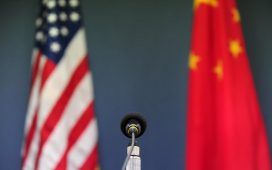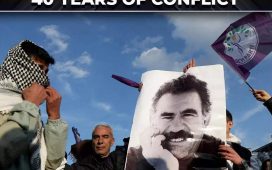
By Jessie Pang
HONG KONG (Reuters) -Three former members of a Hong Kong group that organised annual vigils to mark China’s 1989 Tiananmen Square (NYSE:) crackdown, were found guilty on Saturday of not complying with a national security police request for information.
Chow Hang-tung, 38, a prominent Hong Kong pro-democracy activist and former vice-chairperson of the Hong Kong Alliance in Support of Patriotic Democratic Movements in China, was among those convicted by the magistrate court.
Two other former standing committee members of the Alliance, Tang Ngok Kwan and Tsui Hon Kwong, were also found guilty.
The now-disbanded Alliance was the main organiser of Hong Kong’s June 4 candlelight vigil for victims of China’s Tiananmen Square crackdown. Every year it drew tens of thousands of people in the largest public commemoration of its kind on Chinese soil.
Since Hong Kong’s massive pro-democracy protests in 2019, authorities have not allowed the vigil to take place on COVID related grounds. The Alliance disbanded in September 2021 after authorities arrested several senior members of the group, including Chow.
During the trial that only kicked off late last year more than a year after the defendants were arrested, the Alliance was accused by government prosecutor Ivan Cheung of being a “foreign agent” for an unnamed group, after allegedly receiving HK$20,000 ($2,547) from it.
Chow, however, denied this in court, saying the Alliance was an independent civil society group run by Hong Kongers, and that the case against her and the others amounted to “political persecution”.
“The existence of an independent organisation like us that can check power, is essential to the security of a nation, not a threat,” she told the court.
Magistrate Peter Law, who was hand-picked to hear national security cases by Hong Kong’s Beijing-backed leader, said in a written judgement that it was necessary for the police to “ascertain the background” of the group given its political activities and “nexus of interactions with local and non-local organisations and people.”
“Foreign agent is a new concept in Hong Kong without any legal precedent,” Law said. “Some agents are even hidden, so a comprehensive searching and screening exercise is necessary.”
Sentencing is expected on March 11 with a maximum jail term of six months for this particular offence.
Chow has already served two other prison terms for unlawful assembly linked to her involvement in organising Tiananmen commemoration events, but she still faces a separate, graver charge of subverting state power through the Alliance.
Some key details of the case, including the overseas organisations and individuals alleged to have ties to the Alliance, were kept confidential after the prosecutor applied for “Public Interest Immunity” (PII), arguing these disclosures would the harm public interest.
“Leaking of secret information, such as identities, strategies and interim investigation results of others would definitely seriously jeopardise the ongoing investigation,” Law said.
The national security law, which punishes acts including subversion and collusion with foreign forces has been criticised by some Western governments as a tool to crush dissent.
Chinese and Hong Kong officials say the law is necessary to restore stability to the city after the city’s protracted anti-China protests in 2019.










